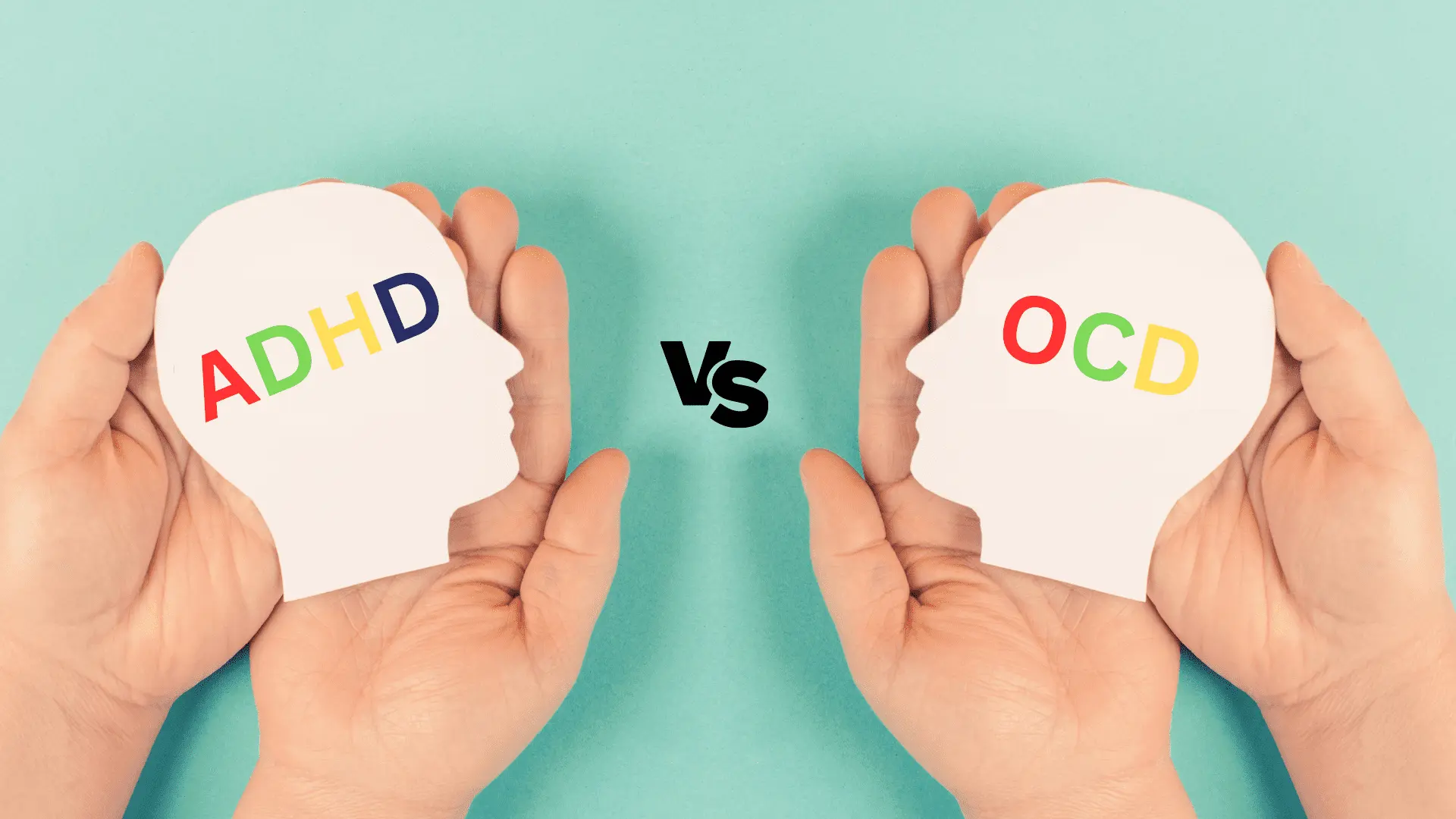Introduction
OCD vs ADHD are two distinct mental health conditions that can significantly impact daily life. While they may share some overlapping symptoms, they differ in their underlying causes, presentation, and management strategies. Understanding the differences between OCD vs ADHD can help individuals and caregivers navigate these conditions effectively.
In this blog, we explore the key distinctions between OCD vs ADHD, shedding light on their unique characteristics, common symptoms, and ways to seek help.

What Is OCD?
Obsessive-Compulsive Disorder (OCD) is a mental health condition characterized by intrusive, unwanted thoughts (obsessions) and repetitive behaviors or mental acts (compulsions) performed to alleviate anxiety caused by those thoughts.
For individuals seeking treatment for OCD, consider consulting qualified mental health professionals such as:
Common Symptoms of OCD
- Persistent fear of contamination or dirt.
- Intrusive thoughts about harm or mistakes.
- Compulsions such as excessive cleaning, checking, or counting.
- Difficulty focusing due to intrusive thoughts.
OCD often creates a cycle where obsessions trigger anxiety, and compulsions provide temporary relief but reinforce the obsessive thoughts.
For further information, you can refer to the National Institute of Mental Health (NIMH) website.
What Is ADHD?
Attention-Deficit/Hyperactivity Disorder (ADHD) is a neurodevelopmental disorder that affects attention, impulse control, and hyperactivity. It often manifests in childhood but can persist into adulthood.
Common Symptoms of ADHD
- Difficulty sustaining attention in tasks or activities.
- Impulsive behavior and decision-making.
- Restlessness or an inability to sit still.
- Challenges with time management and organization.
Unlike OCD, ADHD is primarily linked to difficulties with attention regulation and executive functioning rather than anxiety-driven compulsions.
For detailed insights, visit the Centers for Disease Control and Prevention (CDC) ADHD resource page.
5 Key Differences Between OCD vs ADHD
- Nature of the Condition
OCD vs ADHD differ fundamentally: OCD is an anxiety disorder focused on intrusive thoughts and repetitive behaviors, while ADHD is a neurodevelopmental disorder involving attention and hyperactivity challenges.
- Impact on Attention
Individuals with OCD may appear distracted due to their preoccupation with intrusive thoughts. Conversely, those with ADHD struggle with sustaining focus or prioritizing tasks.
- Impulsivity vs. Perfectionism
A core difference in OCD vs ADHD lies in behavior—ADHD leads to impulsive decisions, while OCD involves perfectionism and excessive caution.
- Behavioral Manifestations
In OCD, behaviors are deliberate and ritualistic, aimed at reducing anxiety. In ADHD, behaviors are spontaneous and often driven by hyperactivity or impulsivity.
- Co-occurrence and Misdiagnosis
Co-occurrence of OCD vs ADHD can complicate diagnosis. Misdiagnosing one condition as the other can lead to ineffective management strategies.
For accurate diagnosis and support, consider consulting a licensed mental health professional or visiting the Mental Health America website for resources.

Challenges of Living with OCD or ADHD
Emotional and Social Impact
- Individuals with OCD may experience isolation due to the stigma surrounding their compulsive behaviors.
- Those with ADHD may struggle with interpersonal relationships due to impulsivity or forgetfulness.
Academic and Workplace Difficulties
- OCD can make completing tasks time-consuming due to perfectionism or rituals.
- ADHD often affects productivity and meeting deadlines.
Support from therapists, educators, and employers can help mitigate these challenges and create a supportive environment for individuals living with OCD or ADHD.
When to Seek Help
If you or a loved one experiences symptoms of OCD or ADHD that disrupt daily life, it’s essential to seek professional help. Early diagnosis and tailored interventions can improve quality of life significantly.
You can explore resources and find support through organizations like the Substance Abuse and Mental Health Services Administration (SAMHSA).

Conclusion
OCD and ADHD are complex conditions with unique challenges, but understanding their differences is the first step toward effective management. By identifying key symptoms and seeking appropriate professional guidance, individuals can take control of their mental health journey.
If you or someone you know is struggling, reach out to trusted resources or mental health professionals to ensure timely support. Recognizing the distinct nature of these conditions can pave the way for a healthier, more fulfilling life.

